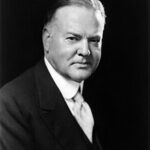The Bonus Army removal of 1932 marked one of the most controversial presidential decisions in American history. President Herbert Hoover authorized federal troops to forcibly evict 43,000 World War I veterans and their families from Washington D.C. These veterans had gathered peacefully to demand early payment of their service bonuses.
The Bonus Army March Decision
In June 1932, desperate veterans traveled to the nation’s capital seeking economic relief. The Great Depression had devastated their lives and communities. Congress had promised them bonus payments in 1945, but veterans needed money immediately. They established camps near the Capitol, calling themselves the Bonus Expeditionary Force. Their peaceful protest gained national sympathy and media attention ⚠️
Military Force Authorization
On July 28, 1932, Hoover ordered General Douglas MacArthur to clear the camps. MacArthur exceeded his orders, using excessive force against the veterans. Federal troops employed tear gas, bayonets, and torches against American war heroes. The military burned down the veterans’ makeshift shelters and belongings 🔥
Media Coverage Impact
Newspapers across America published shocking photographs of the violence. Images showed federal soldiers attacking veterans who had served their country honorably. The Bonus Army removal created a public relations disaster for Hoover’s administration. Radio broadcasts described the brutal scenes to horrified audiences nationwide 📰
Impact:
The Bonus Army removal devastated Herbert Hoover’s political career and transformed American public opinion. This controversial military action against veterans created lasting consequences that extended far beyond the immediate violence.
Electoral Consequences
The Bonus Army incident virtually guaranteed Hoover’s defeat in the 1932 presidential election. Franklin D. Roosevelt exploited the controversy throughout his campaign. Voters saw Hoover as callous and disconnected from ordinary Americans’ suffering. The images of federal troops attacking veterans became powerful campaign ammunition against the incumbent president 📉
Veterans’ Rights Movement
The brutal treatment of the Bonus Army galvanized veterans’ advocacy groups nationwide. World War I veterans organized more effectively to demand their promised benefits. Their struggle highlighted the government’s failure to support returning servicemen adequately. This movement eventually led to the GI Bill and improved veterans’ benefits programs 🎖️
Constitutional Questions
Legal scholars debated the constitutionality of using federal troops against peaceful protesters. The Bonus Army removal raised serious questions about First Amendment rights. Constitutional experts criticized the military’s excessive response to civilian demonstrations. This controversy influenced future policies regarding military intervention in domestic protests 📜
Long-term Political Impact
The incident strengthened arguments for expanded federal social programs. Americans demanded government action to address economic inequality and veteran welfare. The New Deal’s popularity partly stemmed from public outrage over the Bonus Army treatment. This event demonstrated the political costs of appearing unsympathetic to citizens’ economic struggles.
